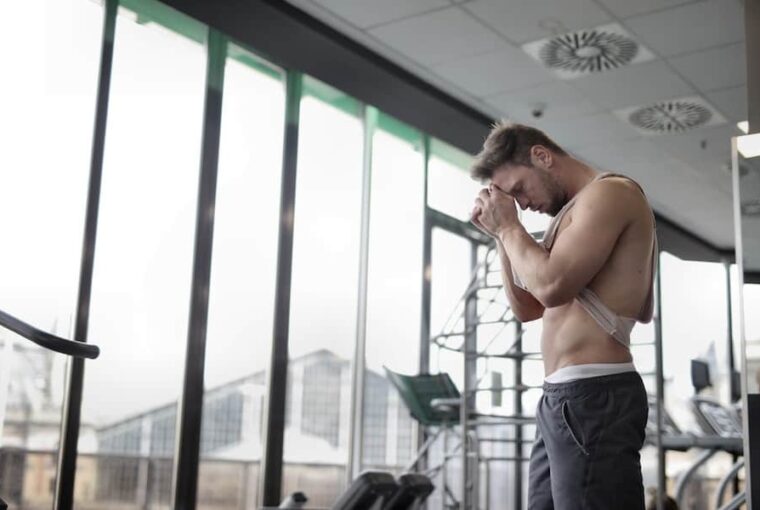There’s no doubt regular exercise is the way to a healthy and fit lifestyle. When you’re consistent at the gym or even working out at home, it becomes a routine commitment. Something that gives you a sense of fulfillment that’s hard to shake; nothing compares to that adrenaline rush.
Yes, giving it your 100% has its perks, but sometimes, when you go too hard, you end up doing more harm than good. One of those harms is muscle fatigue.
Muscle fatigue is common, but we don’t always know how to treat it. Here are 5 ways to reduce muscle fatigue so that you can get back on your grind as soon as possible!
Reasons Why You Have Muscle Fatigue
It’s important to know that you can have muscle fatigue for other reasons besides exercising. Let’s explore some of them,
- Exercising, repetitive movements, and routines
- Anxiety or depression-related body aches and strain
- Dehydration
- Sleep deprivation
- Stress
- Sedentary lifestyle
- Mineral and vitamin deficiencies
- Medicine side-effects
- Age-related complications
- Other chronic conditions like Chronic Fatigue Syndrome (CFS), fibromyalgia, etc.
5 Ways to Reduce Muscle Fatigue
Now that we’ve seen only a few reasons why you have muscle fatigue let’s look at some ways to reduce it. Remember, these tips and tricks are only to be used in reducing muscle fatigue caused by exercise, performing tedious tasks, and other physical activity-related causes. These aren’t to be used to treat muscle fatigue caused by chronic conditions, serious medical ailments, or other underlying reasons.
1. Relaxing and Resting
There’s nothing like a day off from your routine lifestyle. Even Superman’s gotta take off his cape sometimes! All the leading athletes, sportsmen, and physical performers prioritize rest days, especially when muscle fatigue is involved.
Taking a few days off following days or weeks of intense exercise or other physical activity is crucial to let your muscles recover on their own. Take it easy on those rest days, lay back, chill out and let your tired muscles heal themselves. If you allow a sufficient amount of rest, you’ll be back killing it at the gym in no time! But remember, take it easy.
2. The Right Gear While Exercising
You probably never thought of this, but wearing and using the right gear when exercising can help reduce muscle soreness and fatigue a lot! Men’s compression shirts and other compression garments help improve blood circulation and reduce muscle vibration during exercise, all the while improving and enhancing your stamina.
Women’s compression clothing, like sports bras, shorts, and shirts, also helps reduce muscle fatigue during exercise. They also aid in regulating PMS symptoms that might hamper their performance.
Proper footwear is also a big deal. The right shoe that offers support, cushioning, and stability is crucial while lifting weights and sweating it out. Other accessories like weight lifting belts, resistance bands, and cuffs, knee pads are also great for reducing muscle fatigue not just while working out but for other physical activities as well.
3. Sleep
Prioritizing sleep quality is vital for reducing muscle fatigue. When you get enough sleep, it allows your muscles to recover and repair.
If you know, when your body enters the deep sleep phase, your growth hormone helps restore tissue and heals tired or sore muscles. Sleep plays a very important role in regulating hormones, which is also important for muscle repair. You want 6-9 hours of sleep every night and build a comfortable and consistent sleep routine.
4. Nutrition
Food is the fuel for our body. When you have a healthy diet that is rich in essential components like protein, healthy fats, carbs, and antioxidants, it helps in the process of muscle healing and restoration faster if fatigued.
Also, it reduces the chances of them being sore in the first place. Additionally, with a good diet, you must pair that up with drinking water and staying hydrated as much as possible, especially during exercise.
You can take vitamin supplements to support your diet and enhance your nutritional intake, which also helps heal muscles faster.
5. Prioritize Mental Health
Remember, keeping your mental health in check is crucial to reduce any and all forms of fatigue. Meditate to manage stress or anxiety, get a relaxing full body massage, get enough sleep, and most importantly, take breaks.
If there are days when you don’t feel like exercising, by all means, take those days off. There’s nothing wrong with taking time-outs for yourself. Listen to what your body tells you and help foster a positive environment around you to encourage a healthy mindset and optimistic outlook on life.
FAQs
What Is A Good Workout Routine For Post-Recovery From Muscle Fatigue?
Ans: For post-recovery from muscle fatigue, take it slow. Don’t jump back into it like before and ruin all your progress. Take it easy, do your warm-ups properly, and let your body ease into your workouts how it wants to.
Does Muscle Fatigue Go Away On Its Own?
Ans: If you let your body rest and give it enough time to recover and recuperate, then yes, of course, muscle fatigue will go away on its own.
Can I Ice My Strained Muscles?
Ans: Yes, you can apply a cold compress on strained muscles to decrease inflammation, swelling, and pain. But don’t rely on ice being the only treatment; if your muscle pains persist after a day, it’s best to check with a doctor. Also, don’t take any unprescribed medicines to treat the injury.
Conclusion
We hope this guide helps you navigate through muscle fatigue and reduce it swiftly. Remember to rest and take breaks, incorporate the right tools in your exercise, maintain a healthy diet and enough sleep, and of course, check in with your mental health. We wish you a quick and easy recovery!




